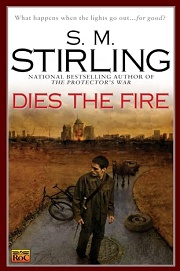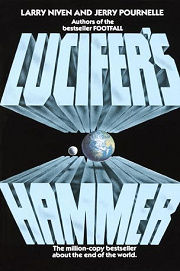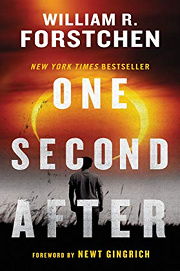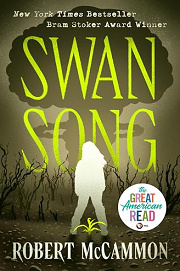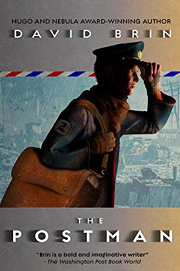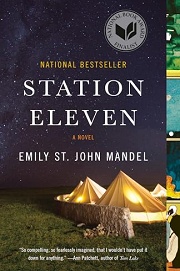Share your thoughts in a quick Shelf Talk!
Dies the Fire by S. M. Stirling
When a mysterious event snuffs out electricity and gunpowder overnight, modern civilization crumbles—and survival depends on old skills made new. Communities rise, warlords scheme, and blades and bows return to the fore. Dies the Fire is a gritty, sweeping tale of resilience and reinvention, perfect for readers who love post-apocalyptic worlds with heart and steel.
Have you read this book? Share what you liked (or didn’t), and we’ll use your answers to recommend your next favorite read!
Love Dies the Fire but not sure what to read next?
These picks are popular with readers who enjoyed this book. Complete a quick Shelf Talk to get recommendations made just for you! Warning: possible spoilers for Dies the Fire below.
In Dies the Fire, did you enjoy ...
... watching society crash and reset into feudal factions after modern tech fails?
Lucifer's Hammer by Larry Niven and Jerry Pournelle
If the way Juniper Mackenzie forges Clan Mackenzie with longbows and ritual, while Mike Havel builds the Bearkillers to stand against the Protector’s neo‑feudal ambitions, hooked you, you’ll love how a comet strike forces California communities to reinvent law, agriculture, and defense in Lucifer’s Hammer. Like the clashes with Norman Arminger’s Portland Protectorate, you’ll get tense stand‑offs against raiders, hard choices about who gets shelter, and the nuts‑and‑bolts of rebuilding a working enclave from scavenged know‑how.
... gritty, day-to-day survival logistics when the grid goes dark?
One Second After by William R. Forstchen
Drawn to the Bearkillers’ horse‑archer drills, pike walls, and scrounged medicine runs after the Change? One Second After delivers that same ground‑level urgency. As John Matherson organizes militias, rationing, and ad‑hoc clinics after an EMP, you’ll recognize the practical triage and tough council decisions that echoed when Juniper rationed grain for Sutterdown and Mike enforced hard discipline on the road—right down to the moral calculus of who the community can save.
... following multiple survivors whose paths converge across a shattered America?
Swan Song by Robert R. McCammon
If you liked how Dies the Fire weaves Juniper’s clan, Mike Havel’s Bearkillers, and the Protector’s warbands into intersecting paths, Swan Song offers a similarly sweeping tapestry. You’ll track Swan, Josh, Sister, and their allies as their journeys collide—much like the build‑up to clashes with Norman Arminger—balancing harrowing road episodes with the formation of tight‑knit bands that feel as lived‑in as Clan Mackenzie around the fire.
... watching new myths, militias, and mail routes become the spine of a reborn society?
The Postman by David Brin
The way Juniper shapes culture—chants, oaths, and Wiccan rites—and how the Protector codifies chivalry for control are key pleasures of Dies the Fire. In The Postman, a simple postal uniform evolves into a nation‑binding myth, sparking alliances and resistance against Holnist warlords. If the Mackenzies’ moots, the Bearkillers’ command structure, and the Protectorate’s pageantry fascinated you, this rich, boots‑on‑the‑ground worldbuilding will hit the same nerve.
... shifting viewpoints that build a mosaic of community after collapse?
Station Eleven by Emily St. John Mandel
Enjoyed how Dies the Fire alternates between Juniper’s Willamette Valley hearth and Mike Havel’s road‑march decisions, letting you see the Change from multiple angles before converging on showdowns with the Protector? Station Eleven uses a similar mosaic: performers in the Traveling Symphony, archivists at the Museum of Civilization, and others piece together a post‑flu world, echoing the way Mackenzies and Bearkillers create culture and continuity out of loss.
Unlock your personalized book recommendations! Just take a quick Shelf Talk for Dies the Fire by S. M. Stirling. It’s only a few questions and takes less than a minute.
